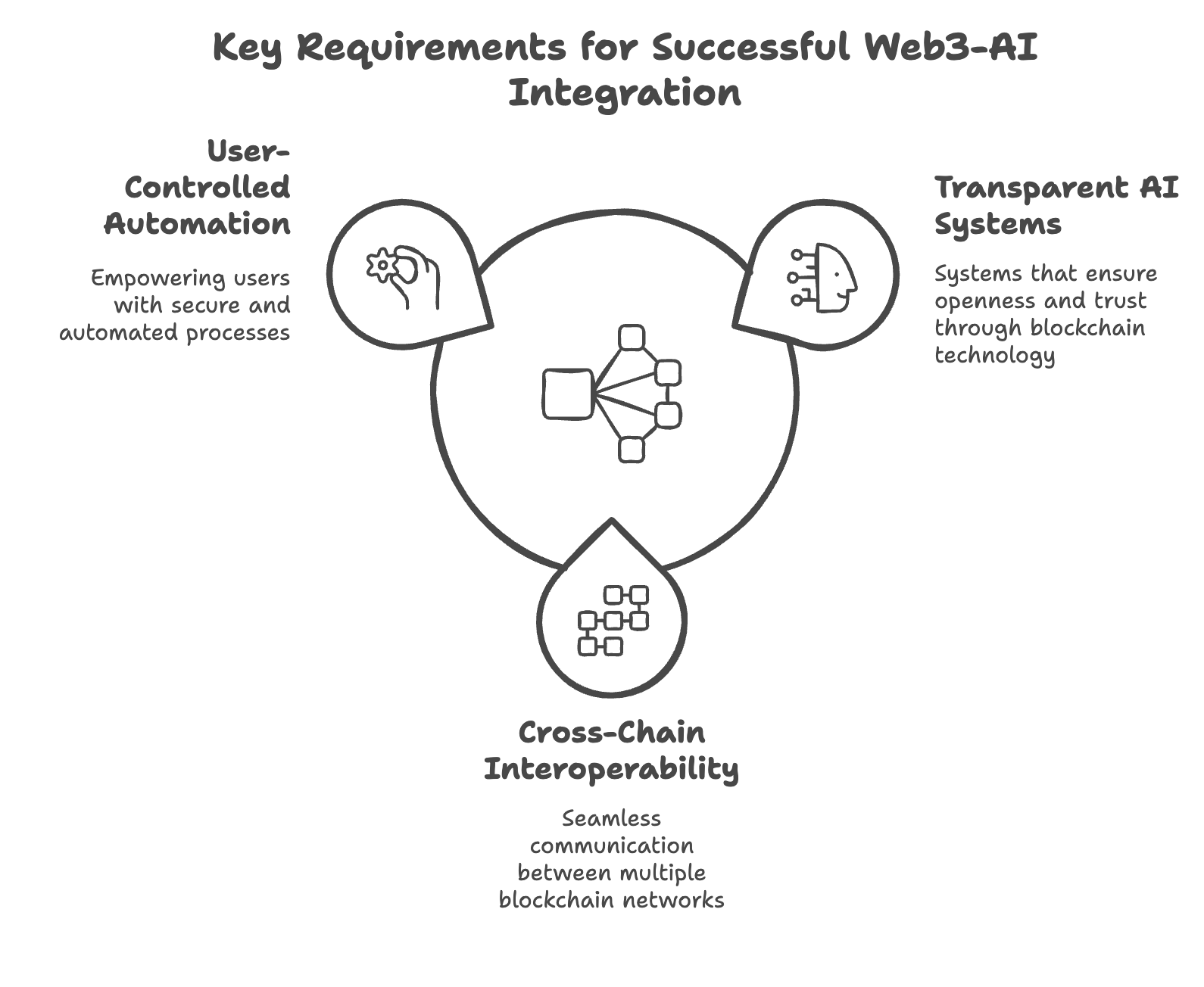Guru Network's Alignment with Cutting-Edge Web3-AI Research
Buterin's "AI as interface" concept, Transparent AI systems, Cross-chain interoperability and User-controlled automation - challenges directly addressed by Guru Network

Australian researchers David Hyland-Wood and Sandra Johnson recently published a seminal paper analyzing the convergence of Web3 and AI technologies, identifying critical synergies and integration gaps in decentralized ecosystems. Their work highlights the need for adaptive systems combining real-time blockchain data with AI-driven decision-making – a challenge directly addressed by Guru Network's Blockchain Business Process Automation (BBPA) Engine.
The paper emphasizes three key requirements for successful Web3-AI integration:
- Transparent AI systems with blockchain-backed marketplaces (implemented through Guru's Flow Catalog and Micro Franchise Economy)[2]
- Cross-chain interoperability (supported by Guru's integration with 18+ chains and Chainlink's oracle network)
- User-controlled automation that maintains security (operationalized in Guru's non-custodial automation snippets)

Notably, Guru Network's architecture mirrors the researchers' proposed "adjacent possible" framework for AI-blockchain evolution, particularly through:
Current implementations demonstrate practical relevance:
- DexGuru AI: Reducing human error in DeFi via AI-powered trade execution
- Burning Meme: Implementing blockchain-attested AI art generation/NFT minting
These applications operationalize academic proposals for sustainable Web3-AI ecosystems, while creating new participation models for retail and institutional users alike.
By addressing the integration challenges outlined in the paper – including explainable AI (XAI) through process traceability and combating bias via curated AI processor catalogs – Guru Network emerges as a practical implementation of the researchers' theoretical framework. Our BPMN-standard workflows and open-source Flow Orchestrator directly respond to academic calls for developer-friendly tooling in Web3-AI systems.
1. AI-Driven Process Automation
The network's Blockchain Business Process Automation (BBPA) Engine enables context-aware workflows that combine:
- Real-time blockchain data from 18+ chains
- AI prediction models
- Cross-chain smart contract execution
- User-controlled automation snippets

This directly addresses the research-identified need for adaptive systems that bridge on-chain/off-chain operations, while implementing Buterin's "AI as interface" concept through non-custodial automation.
2. Decentralized AI Infrastructure
Guru Network's architecture incorporates:
- Flow Catalog: Community-contributed BPMN workflows with monetization
- Micro Franchise Economy: Incentivized roles for AI model contributors/node operators
- Chainlink Integration: Secure off-chain computation
These features respond to academic calls for transparent AI systems with blockchain-backed marketplaces, while solving the "oracle problem" in AI-driven DeFi identified by industry analysts.
3. Developer-Centric Tooling
The network provides:
- Low-code process designers
- Pre-built AI agents for analytics/trading
- Open-source Flow Orchestrator framework
This aligns with Kumar et al.'s findings on critical success factors for Web3-AI adoption, reducing development friction while maintaining enterprise-grade security through Camunda-based orchestration.
Strategic Differentiation
Compared to alternatives, Guru Network uniquely combines:
| Feature | Guru Network | Competitors |
|---|---|---|
| AI Model Marketplace | ✓ | Limited |
| Cross-Chain Execution | 18+ chains | Single-chain focus |
| Process Monetization | Dual-layer | One-dimensional |
Real-World Impact
As research emphasizes the 10-year adoption horizon for AI-blockchain integration, Guru Network's modular architecture and focus on composable automation position it as essential infrastructure for the next phase of Web3 evolution.
